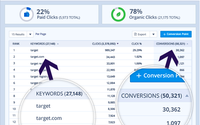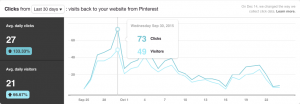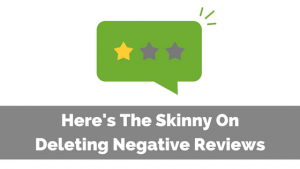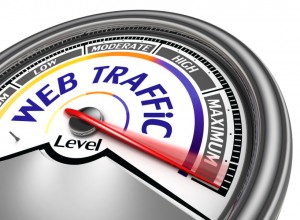— January 17, 2019
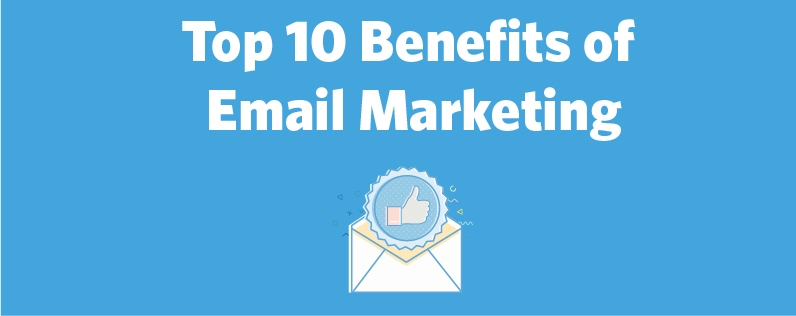
A study from Adobe estimates that millennials spend about 6.4 hours each day reading their emails.
It’s not just millennials using email. Most people use email daily, and they check their inbox everywhere: while working out, eating, and even using the bathroom.
Email marketing provides a reliable form of communication between your brand and your customers. It’s a cost-effective solution to reach customers where they visit every day — their inbox.
Find out the other benefits that make email marketing a smart solution for communicating with your audience, finding new customers, and growing your business.
Why email marketing works
Unlike some other marketing channels, email marketing allows you to keep in touch with your customers on a consistent basis. Be it a simple, “Thank you for subscribing,” a cheery, “Welcome on board,” or a sincere “Happy Birthday,” email is the easiest and most effective way to let your customers know you value them. Customers love it when a business treats them as an individual, not just like everyone else.
That value should show in the emails you send, and the more value you provide to your target audience, the more they’ll look forward to hearing from you. When that happens, it’s easier to get them to engage with your call-to-action.
There’s plenty of data to back up the benefits of email marketing:
- 91 percent of US adults like to receive promotional emails from companies they do business with. (MarketingSherpa)
- Email is almost 40 times more effective than Facebook, and Twitter combined in helping your business acquire new customers. (McKinsey)
Take your marketing to the next level with email
Email continues to be one the best ways to reach out to your customers and potential leads alike. There are several benefits to planning out the perfect email marketing strategy for your business:
1. Targeted and personalized content
Email marketing allows you to segment your customers into different lists based on their preferences to send highly personalized content. From crafting the perfect subject line to images that resonate with your customer, and valuable content that helps your audience, email is the perfect channel to drive engagement.
Adjust your messaging for different audiences so your emails are always engaging. Ignore the impulse to push for a hard sell too early in the process. Cultivate a strong foundation of trust between your brand and the recipient first, and create a bond with your customer than can grow over time.
2. Build credibility
Emails from an unknown sender or with a shady subject line can feel like spam. It just feels off, and customers often just delete these emails.
For some customers, an emoji will make them click and be happy. For others, the same subject line might make them go hunting for the unsubscribe link. You need to tailor your content according to what your readers want. Knowing your readers’ interests and needs gets your email into the inbox, instead of the spam folder.
Creating a permission-based email list that includes a checkbox for users to opt-in to your mailing list ensures that a customer knows which emails they’re signing up for, and how often they’ll be receiving emails from you.
3. Better brand recognition
Some of the most recognizable brands in the world today are so well-known that they are synonymous with the industry in which they operate. Spotify is a great example. All of their emails are relevant and brilliantly curated.
Now imagine your small business standing out as a clearly identifiable brand like Spotify.
Email marketing is a great way to develop your brand identity because it gives you a direct line to the email inboxes of your customers or potential customers. Once you begin creating valuable content for the customer, you’ll have an edge over your competitors.
You can even use your emails to get useful feedback. Are customers happy with the content you’re providing? Would they like to learn something different?
Use a survey or start a discussion on social media. Once you get them involved in the process, you’ll know exactly how to provide valuable content in your emails.
4. Boost sales
Marketing Week reports that email generates around $ 37B retail sales annually.
Email marketing provides a great opportunity for impulse buying. You can entice a customer to make another purchase in a few ways:
- Feature items that are often purchased alongside the products the customer bought.
- List similar items to the customer’s past purchases.
- Create a special offer or discount for future purchases.
Customers often act on impulse when they get an email letting them know about a relevant product which is related to their previous purchase. This is especially true if there is a relevant promotion.
5. Stronger customer relationships
Your customers appreciate a good email. The time and effort it takes to draft the perfect email doesn’t go unnoticed. They want to know what’s happening with your business, and how they can get involved.
It’s nearly impossible to reach out to all your customers in person or by phone. Email marketing campaigns bridge that gap. You could even set up a drip marketing campaign to help you smooth out the process.
Drip campaigns are ongoing and drive the user down the buyer’s journey to a final conversion point. They’re often used to provide constant value to subscribers while helping keep your brand top-of-mind. Often times, these emails slowly “drip” helpful information, products, or tips, over days, weeks, or months.
For example, the emails you receive when you browse Amazon, but don’t buy anything, are a drip email marketing automation at work.
6. Optimize your time and budget
With any business, but especially within a small business, there are always time and budget constraints. While big businesses can afford to go all out and buy advertising space during the Super Bowl, small businesses don’t have that luxury.
Even targeted direct mail campaigns that deliver flyers to nearby mailboxes can be costly. Between designing, printing, and mailing costs, you could spend several dollars per flyer delivery.
All this time spent not focusing on your business is lost revenue, and a lost opportunity to connect with your customers on a personal level. One of the most significant advantages of email marketing for small businesses is the efficient use of time and budget. Designing a professional email marketing campaign is not complicated, or time-consuming. Sending emails to many subscribers is also still cost-effective.
7. Metrics to learn what works
There is a quick window of opportunity when it comes to customers opening your emails. They see your email in their inbox, and depending on how well the “From name” and subject line resonate, they decide whether to open the email or ignore it. A good open rate means that your customers know your brand well enough to want to hear from you, no matter the time of the day.
Next up is your click-through-rate (CTR) which generally gives you a good idea of how many customers took the time to go through your email content to click on the links within. The average click-through rate across all industries is around 7%.
After a customer has clicked through your email, ideally the next goal is to get them to convert – in other words, to follow through on the action your email has asked them to take. Your email conversion rates are an important metric to track, for they tell you how well the call-to-action in your email has performed.
8. Increased traffic to your website
Emails are a great way to get customers to visit your website. You can include relevant links to your site within your email content. You can also use your email campaigns to get customers to engage with other great pieces of content available on your website or blog.
For example, a local design school could send out emails to let them know about their new design class that has a limited number of seats. Many of their customers and potential leads may have missed out on this opportunity to attend the class, had they not revisited the website in time. The design school then can fill all the seats more quickly, instead of waiting for reservations to trickle in.
Include social sharing buttons in your emails to encourage your customers to promote your content across their own social channels.
9. Establish authority
When you run your own business, your goal is to be seen as an expert in your industry. Establish that to position yourself and your business as the authority in the eyes of your customers.
Your customers have signed up for your marketing newsletters because they want to hear from you. They like the content you send and keeping them engaged is one of the biggest wins for any email marketer. Your content is one of your most valuable marketing tools and you can use it to build other areas of your marketing strategy. If people love what you do, then they will sign up to see more great content.
10. Build excitement
Everyone likes to belong to a special group, especially email consumers who like exclusive perks.
Your customers aren’t all the same, and the one-size-fits-all approach doesn’t work. Use your email campaigns to drive home the message that your customers are unique and important to your business.
Whether you’re giving a section of customers a sneak peek into an upcoming product launch, or simply rewarding them for being loyal customers, they all love a sweet deal. Volkswagen offers email subscribers free movie tickets several times a year. Starbucks gives their gold members free drinks around the holidays.
As a small business, you might not be able to go around giving free stuff to your customers, but a little something extra can go a long way. Rewarding your customers is a nice gesture, and from your side, it’s a great way to accelerate your marketing goals. Everybody wins.
Start communicating with your customers through email
It’s easy to get caught up in the intricacies of building out an email marketing campaign that works for your customers and your business. There’s a lot of learning involved, but there’s also a lot of opportunity to communicate with your customers, rather than just sending emails all the time.
With email marketing, you can build your brand, out-do your marketing goals, and set yourself up as an expert, all without breaking your budget. No matter your level of experience, you can create professional email marketing campaigns quickly. That means less time spent worrying about marketing details and more time spent working on making your business successful.
Digital & Social Articles on Business 2 Community
(57)
Report Post
